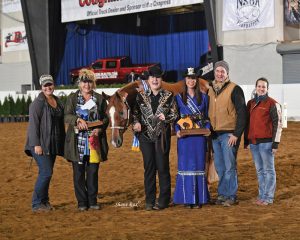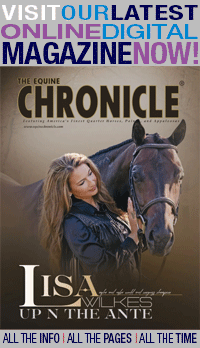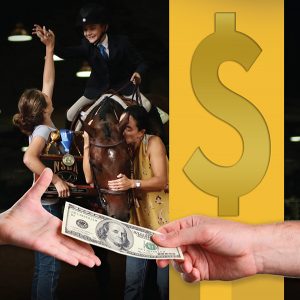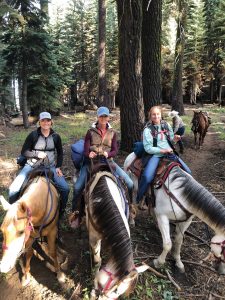paykwik al
online sportwetten
paykasa
paykwik
online sportwetten
paykasa
Raising Financial Grown-Ups – Who Pays the Show Bill When a Youth Becomes an Amateur?
Click here to read the complete article
While they may be adults, legally, many young amateur exhibitors have a long way to go before they are truly self-reliant, especially when it comes to their finances. Horses are expensive, and showing requires a sizable income. Most young adults don’t start out making enough money to afford horses without their parents paying the bills.
Parents love sharing time with their children, at any age, so cutting off an adult child from horses when a family can easily afford to sustain the lifestyle is not an appetizing idea. But, there are other ways to teach a child how to handle money, and a lot of parents don’t see the logic behind quitting horses when they value the relationships and family bonds more than the cash it costs. Thus, many people go through the transition from youth to amateur with mom and dad still taking care of the expense. It works for everyone, so why end a good thing?
Today’s parents in all tax brackets are dealing with this issue as the number of adults who rely on their parents for financial help has grown. A Bankrate.com study found that “about half of parents with adult children reported giving substantial funding to their kids well into their late 20s or even 30s, while most of those kids would have been on their own just a generation ago.” About 15 percent of millennials aged 25-35 live with their parents, which is up 50 percent from 2000, says a Pew Research Census Bureau study (2017). The same study shows that millennials and their parents disagree on how soon they should move out and pay their own bills. It’s a delicate conversation between families, but a necessary one for everyone’s long-term financial security. When does helping adult children financially rob them of their independence and self-worth? Where do parents draw the money line? When is it time to close the family bank and sell the horse?

Horse industry veteran, Elizabeth Brahler, believes financial decisions for adult children are complex and involve a number of factors. “It’s truly in the hands of the parents,” she says. Keeping adult children financially supported in horses is a natural progression, she believes, that stems from the benefits that the family has reaped over the years spent in the youth age division. The time spent around horses working together toward a goal drives a lot of families to stay in the industry well into adulthood. “The older they get, the less you will get the opportunity to work alongside them doing something you both love. Being able to share that, I think, is much easier as they get older,” Brahler says. At the point when a youth is reaching their final years before amateur status, most parents have worked on getting a horse that can take them through several more years. The show equipment and the outfits are purchased, and the major stressful expenses are, for the most, part over. Now is the time to reap the rewards of all the hard work and expense. “The flower you have planted and tended for many years grows and you, as their parent, can sit back and truly take it all in,” Brahler says.
Brahler encourages parents and the American Quarter Horse Association to review additional ways to help keep younger riders involved. “For 18 years, horses have brought something valuable to both your child and you, so why stop now? At least consider continuing until they’re out of college. Then, perhaps, they can maintain a horse and showing either in AQHA, open shows, or perhaps even trail riding at a level they can afford themselves financially,” she says. Brahler believes that the AQHA must consider new ways to keep their feeder group, the youth and their parents, involved in showing. One easy way would be to extend the age group for youth members.
Brahler makes a valid point that an 18- to 19-year-old cannot rent a hotel room or a car by themselves. They would need to travel with their parents, for the most part, even if they wanted to continue showing as an amateur. She adds that many youth just turning amateur leave showing completely. While a few do stay, that percentage is low. “If we could come up with a way to encourage the parents and youth to hang in there, it would be better for all of us. I think the trainers would like to hang onto their customers, and everyone in the industry who makes their living from horse shows benefits. From the AQHA to the veterinarians, farriers, all the way to the shavings suppliers, it continues to help everyone down the line,” she adds.
Brahler has financially supported her daughters’ endeavors in horses past their youth years. She says, “I continue helping–at different times–all three of my daughters: Ella, 25; Annie, 23; and now Lydia, 19. We make it work for us.” The youngest Brahler daughter, Lydia, rides for the SMU Equestrian Team. She plans to ride during her winter break and keep going into the future. “I have very few things these days that my children still need help with. It is as it should be now. They’re older, but I find joy in doing this with them, and I expect for it to only get better with age!”
Elizabeth Brown is the CFO of Mitchell Brown Engineering, Inc., Mitchell Brown Construction, Inc., and Porterville Rock and Recycle, Inc., as well as an exhibitor and horse show mom. The subject of adult children and financial independence has been an issue she has dealt with in her family.












